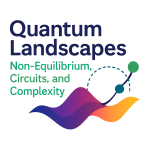Scientific animation program and support for emerging research in cognitive sciences
The goal of our scientific animation program is to federate local skills and promote the emergence of inter-laboratory projects in cognitive science. CY University has significant strengths in modeling and educational sciences and it can also rely on the GHT-NOVO hospital group (Val d'Oise hospital group) which includes several services dealing with pathologies related to cognitive science.
Our network brings together hospital specialists (surgeons, psychiatrists, neurologists, psychologists, rehabilitators, etc.) and teacher-researchers (psychologists, sociologists, and modeling and AI specialists).
Our working group started its activities in spring 2019. The meetings allow exchanges between members of CY, schools on the site (ILEPS, EISTI, ENSEA, ESSEC) and hospital practitioners from GHT-NOVO). Our common areas of interest concern the understanding of cognitive mechanisms, their development and the treatment of associated pathologies. More specifically, our discussions focus on mental pathologies (diagnosis, modeling, treatment), education and school learning (cognitive development, educational methods, impact of new technologies, etc.) and rehabilitation.
Activities:
- Thematic days
- Regular seminar
Means:
- Funding of study days, seminars, workshops ...
- Internship funding
- Purchase of shared equipment
Objectives: develop synergies between existing teams to create an important pole in cognitive sciences (joint inter-laboratory projects).
The partners:
- ENSEA (National Higher School of Electronics and its Applications)
- INSPE of the Académie de Versailles (National Higher Institute for Teaching and Education)
- ESSEC (Higher School of Economic and Commercial Sciences)
- GHT-NOVO (Vexin Val-d'Oise Northwest Territories Hospital Group)
- ILEPS (Higher School of Sports and Education Trades)
Laboratories:
- HAPPINESS (Well-being, Organization, Digital, Habitability, Education, Universality, Relations, Knowledge)
- EMA (School, Mutations, Apprenticeships)
- ETIS (Information Processing and Systems Teams: CELL-NEUROCYBER IA neuro, electronic modeling teams)
- LPTM (Laboratory of Theoretical Physics and Modeling)
- PARAGRAPH (Psychology laboratory on the implications of information technology)
- THEMA (Economic theory, modeling and applications)
The meetings:
- Friday December 18, 2020: 3:00 p.m. - 5:00 p.m.
3:00 p.m.
Introduction / tour de table
3:15 p.m.
Collaborative work and evolution of spatial skills and 3D modeling strategies - Sophie Charles (Quartz at Supméca and Bonheurs at Cergy Paris University)
4:00 p.m.
The eye-tracking laboratory - Delphine Dubart and Gilles Laurent (ESSEC Business School, marketing department)
------------------------------------------------------------------------------
- Friday January 15, 2021: 4:00 p.m. - 6:00 p.m.
4:00 p.m.
Impact of atlases and subjects variability on parameter optimization of whole-brain dynamical models - Thanos Manos (LPTM)
4:45 p.m.
Role of the hippocampus in cognitive processes and associated pathologies - Philippe Gaussier (ETIS)
5.45 p.m.
Discussion / Organization of subsequent meetings
------------------------------------------------------------------------------
- Thursday January 28, 2021 at 5:00 p.m.
5:00 p.m.
Interests of automated social signal processing methods for psychopathology - David Cohen (head of the child and adolescent psychopathology department at the Pitié Salpétrière hospital, Paris)
Abstract: The study of social interactions and their dysfunctions is at the heart of psychopathology. Yet their study is complex. We propose to illustrate how the use of automated social signal processing methods has enabled a paradigm shift. From various sources (family films, laboratory experiments), we will show how these methods were used (1) to assess the synchrony between partners (baby, child, parent, agent or robot) in a pathological context (autism, neglectful mother ) or not ; (2) to characterize the interpersonal exchanges and the social signals exchanged (emotional prosody, movements, vocalization, turn of speech); (3) to introduce new approaches such as that of developmental robotics; (4) finally, to explore the insight in borderline adolescents.
-----------------------------------------------------------------------------
16h00-17h00: Sport Posture and Cognition by Pascal Bourgeois (Teams CY ILEPS) 5:00 p.m .: Robots as embodied models of obsessive-compulsive disorders by Lola Cañamero from the ETIS / ENSEA - CY Paris Cergy Université - CNRS laboratory.
------------------------------------------------------------------------------
- Friday May 28, 2021: as part of a Pontoise hospital staff and zoom meeting
3:00 p.m. - 3:45 p.m. Sleep disorders in children by Nathalie Blain (CH Pontoise)
3.45 p.m. - 4.30 p.m. Neuropsychological consequences of sleep disorders by Karene Cerisier (CH Pontoise)
4:45 p.m. - 5:30 p.m. Clinical research on sleep disorders in children during confinement by Erwan Vion (CH Pontoise)
------------------------------------------------------------------------------
- Thursday June 3, 2021: zoom meeting
4:00 p.m. - 4:15 p.m. Discussion / preparation of next meetings
4:15 p.m. - 5:00 p.m. Human / robot interactions and schizophrenia: influence of facial feedback by Laura Cohen from the ETIS / ENSEA laboratory - CY Paris Cergy Université - CNRS
5:00 p.m. - 6:00 p.m. Towards a quantitative understanding of collective animal behavior: decision-making and collective intelligence in animal groups by Fernando Peruani from the LPTM laboratory - CY Paris Cergy Université - CNRS
----------------------------------------------------------------------------
Pour participer aux réunions, lien Zoom :
https://cyu-fr.zoom.us/j/2222769563?pwd=RmJESDFJaVBNeFVLRU4rMi9qNGo1UT09

